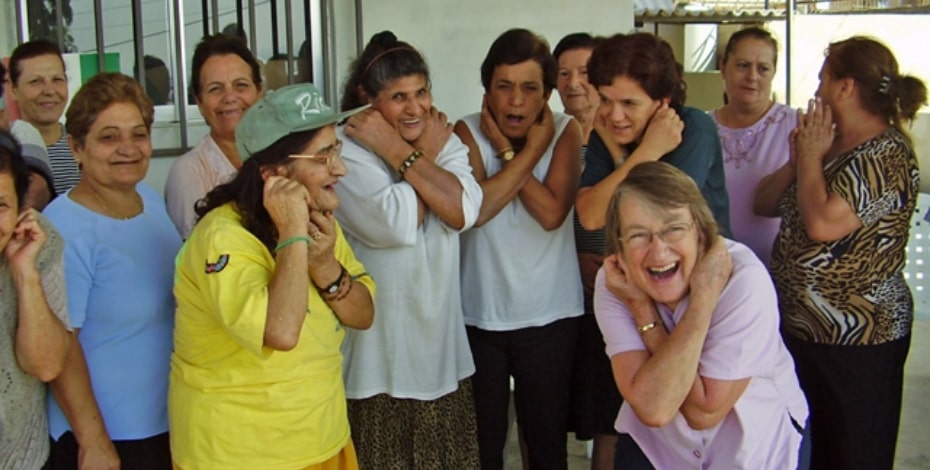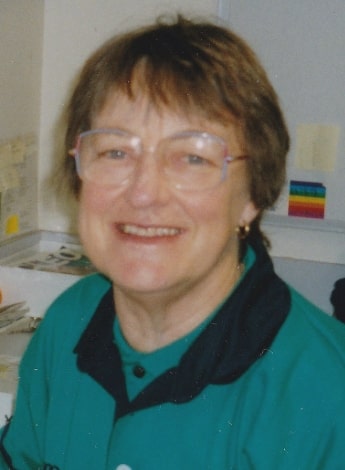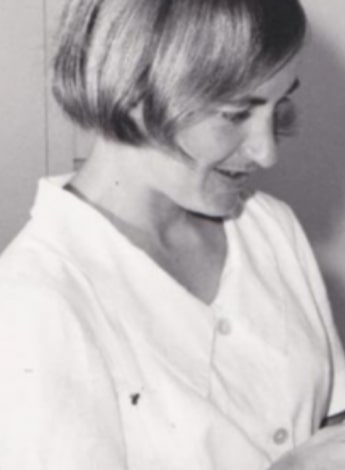
Vale Glenys Davies, 1941–2021

The many friends and colleagues of Glenys Davies (nee Witham) at home and abroad will be saddened to hear of her death on 17 November 2021.
In 1963, shortly after graduation, Glenys Davies’s curiosity about the world took her via boat to Europe, where she volunteered in an Austrian hostel housing Hungarian refugees.
For three months she cleaned, answered phones and helped in the kitchen.
After Austria, Glenys spent more than a year gaining skills and experience as a physiotherapist in the UK and Denmark.
On the plane back to Perth, Glenys remembered flying over India and thinking that she had missed quite a lot of the world in between.
This sparked her interest in seeing parts of the world other than Europe.
She found out about what was then called Australian Volunteers Abroad and put in her application to volunteer in Papua New Guinea.
Glenys was accepted into the program, along with two teachers from Western Australia—the first three volunteers from Western Australia to be part of what is now called the Australian Volunteers Program.
Glenys was assigned a yearlong volunteer role with the Red Cross as a physiotherapist working with children with disabilities.
In 1966, in Port Moresby, she was thrown into the deep end of paediatric physiotherapy.
Where she thought she would be part of a team caring for kids with cerebral palsy, intellectual disabilities, poliomyelitis and viral encephalitis, she discovered she was the team.
The mothers of the children would help with translation, assistance she found indispensable and which added to the enjoyment of working with the children and their families.
Glenys even became a Girl Guides Leader in Port Moresby, which made her realise how important it was to see the children in their home setting, proving that integration into their families and their schools was of paramount importance.

Glenys at Burnie Regional Hospital, 2002.
In 1970, Glenys married and moved to the country in Western Australia for a few years, but found time in 1974 to complete a Bachelor of Arts degree at the University of Western Australia.
She contemplated a career change, but the arrival of a baby provided a sufficient change of focus and she worked for a couple of years at the Princess Margaret Hospital plaster clinic before moving to the Perth Chest Clinic.
In 1987, Glenys started work at what is now the Disability Services Commission, working with adults with physical and intellectual disabilities in group homes, including trips to the Pilbara.
From 2002 to 2004, Glenys had a sea change to Burnie, Tasmania, as a senior physiotherapist in the rehabilitation and acute stroke unit.
It was in 2005 that Glenys found she could satisfy her passionate belief in the environment, peace and human rights by joining the Medical Association for Prevention of War.
For the next fifteen years she was heavily involved in campaigns, including the role of treasurer up to 2021.
In 2006 she successfully applied for a volunteer role in Lebanon with the National Association of Medical Conditions—a Palestinian group that had been set up to look after children with disabilities based in one of the Palestinian refugee camps north of Tripoli.
She worked in the camp and every third week provided physiotherapy services, along with the Lebanese and Palestinian workers, in the valley east of Beirut.
After just six weeks, the Beirut airport was bombed and Glenys, along with ten other Australian volunteers, was evacuated back to Australia.
Glenys returned to Lebanon the following year to complete her twelve-month assignment and lived in one of the twelve refugee camps housing over 400,000 Palestinian refugees in Lebanon.
After returning once more to Australia, Glenys remained connected to Lebanon and went back each year for three to four weeks to continue working with the community workers and families she had met while on assignment.

Glenys at the Red Cross, 1963.
In 2012 she returned to Lebanon on a three-month assignment with the Australian Volunteers Program, enabling her to follow up with kids with disabilities she had seen six years before.
A lot of her work was sourcing wheelchairs and equipment, still with the main objective of integrating kids into their homes and the refugee schools.
Glenys became passionate about the rights of Palestinian people and despite the probability of her featuring in various ASIO dossiers, she was a finalist in Western Australia’s Senior Australian of the Year Award for her work in Lebanon and earlier in the 1960s in Papua New Guinea.
Once Glenys’s two children were old enough to fend for themselves, she took to travel around Australia with a passion, sailing on the tall ship STS Leeuwin II, camping in the Flinders Ranges and snorkelling on the Great Barrier Reef.
She travelled to Nepal, New Zealand and Africa and around Europe and the UK.
Glenys’s remarkable experiences defined her support for the objectives of the Medical Association for Prevention of War and the Australian Volunteers Program and for their advocacy for peace, the dispossessed and people with disabilities.
Glenys was also highly respected as an inaugural member of the Retired Physiotherapists Group WA.
Despite her cancer, she attended physical get-togethers such as bushwalking and met with the group weeks before her death.
She will be sorely missed and our members offer condolences and best wishes to her former husband Ross Bolleter, her children Julian and Amanda and her extended family.
Glenys’s experiences were so extensive that this tribute would have been extremely difficult without the assistance of Judy Blyth of the Medical Association for Prevention of War and of the Australian Volunteers Program and without access to the family eulogy.
>> Stuart Gray
Main image: Glenys’s laughter yoga workshop, 2012.
© Copyright 2024 by Australian Physiotherapy Association. All rights reserved.





